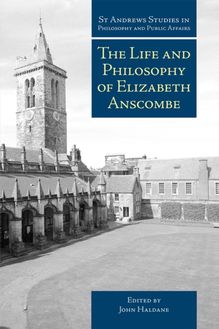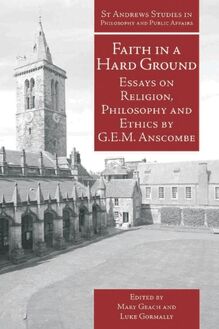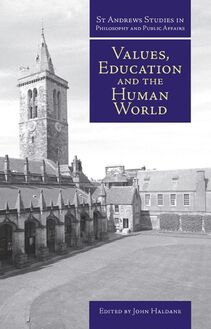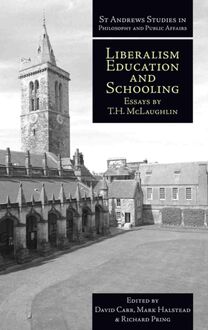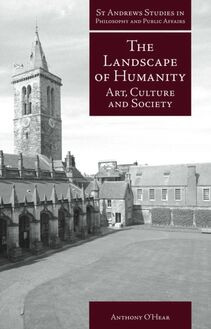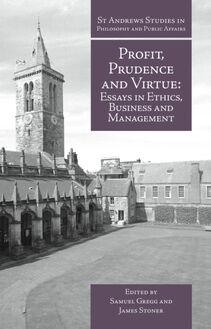-
 Univers
Univers
-
 Ebooks
Ebooks
-
 Livres audio
Livres audio
-
 Presse
Presse
-
 Podcasts
Podcasts
-
 BD
BD
-
 Documents
Documents
-
- Cours
- Révisions
- Ressources pédagogiques
- Sciences de l’éducation
- Manuels scolaires
- Langues
- Travaux de classe
- Annales de BEP
- Etudes supérieures
- Maternelle et primaire
- Fiches de lecture
- Orientation scolaire
- Méthodologie
- Corrigés de devoir
- Annales d’examens et concours
- Annales du bac
- Annales du brevet
- Rapports de stage
La lecture à portée de main
Vous pourrez modifier la taille du texte de cet ouvrage
Découvre YouScribe en t'inscrivant gratuitement
Je m'inscrisDécouvre YouScribe en t'inscrivant gratuitement
Je m'inscrisEn savoir plus
Vous pourrez modifier la taille du texte de cet ouvrage
En savoir plus

Description
Sujets
Informations
| Publié par | Andrews UK |
| Date de parution | 11 avril 2017 |
| Nombre de lectures | 0 |
| EAN13 | 9781845402839 |
| Langue | English |
Informations légales : prix de location à la page 0,0674€. Cette information est donnée uniquement à titre indicatif conformément à la législation en vigueur.
Extrait
Faith in a Hard Ground
Essays on Religion, Philosophy and Ethics by G.E.M. Anscombe
Edited by Mary Geach and Luke Gormally
IMPRINT ACADEMIC
2017 digital version converted and published by
Andrews UK Limited
www.andrewsuk.com
Copyright © M.C. Gormally, 2008, 2017
The moral rights of the author have been asserted.
No part of this publication may be reproduced in any form without permission, except for the quotation of brief passages in criticism and discussion.
Imprint Academic
PO Box 200, Exeter EX5 5YX, UK
Cover Photograph:
St Salvator’s Quadrangle, St Andrews by Peter Adamson from the University of St Andrews collection
And his faith grew in a hard ground
Of doubt and reason and falsehood found,
Where no faith else could grow.
G K Chesterton, The Ballad of the White Horse
For
Becky and Tom
Preface
The present volume is a successor to Human Life, Action and Ethics [1] as part of the project to collect in book form hitherto uncollected and unpublished papers by the late Professor Elizabeth Anscombe. The papers in this volume for the most part concern questions about religious belief, and more particularly about teachings of the Catholic Church, which exercised Elizabeth Anscombe or audiences she was invited to address. A reviewer of the previous volume [2] thought “readers should bear in mind that, with the exception of her celebrated essay ‘Modern Moral Philosophy’ ... she did not include these essays in her collected works.” Her failure to do so was in the case of most essays in that volume hardly surprising since only three of the twenty three papers in it were written or published prior to the process of selecting papers for publication in her Collected Philosophical Papers . [3] Of the twenty five papers in the present volume, however , at least eight were written prior to the selection of papers for the three volumes of collected papers which appeared in 1981. Anscombe kept all of them (with the exception of No.7) on file. Some of them are of interest for their philosophical exploration of questions arising from statements of religious belief; others elucidate what she thought important in the living of a Christian life and in the life of the contemporary Church, apt as it is to succumb to the influences of a secularist culture. They all contribute to a rounded understanding of her work.
No doubt her selection of papers for the 1981 volumes was influenced by what Anscombe thought would command attention among her contemporaries in Anglo-American philosophical circles . But she stood out from those circles not merely for her philosophical originality but also for her defence of what the Catholic Church taught. This led to her being in increasing demand to address Catholic audiences, especially about some of the moral issues which have exercised Catholics in the past half century. [4] Some of those audiences were philosophically sophisticated, others were not. Anscombe pitched her exposition to suit the level of understanding she could assume in her audience. What she did assume in Catholic audiences, which she was not entitled to assume elsewhere, was acceptance of authoritative Church teaching. Some of the papers in the present volume make no such assumption, but many do. Readers will need to be sensitive to this kind of difference, as well as to the differing levels at which exposition is pitched.
I have attempted to establish the dates and the original audience /readership of the papers in this volume. This proved to be a somewhat time-consuming part of the editing process, since there were no indications on file. It was eventually possible, within the time available, to provide precise details of dates and audience /readership for some papers, and approximate details for a related group of three papers, but no information was found about a number of papers. Features of their physical format suggested that the group of three (‘Prophecy’, ‘The immortality of the soul’, and ‘On being in good faith’, Nos. 3, 9 and 12) were all given in the late 1950s and early 1960s to the Philosophical Enquiry Group which met each year between 1954 and 1974 at the Dominican Conference Centre at Spode House in Staffordshire. It was Fr Columba Ryan OP, then teaching philosophy at the adjoining Hawkesyard Priory in the 1950s, who originally proposed inviting a number of Catholics who were professional philosophers to meet on a regular basis at Spode House. Among the first invitees were Elizabeth Anscombe and Peter Geach, and both remained leading figures in the Group for the following twenty years. A number of distinguished twentieth century philosophers were participants in these meetings. The meetings focused on philosophical issues related to Christian belief and practice . The Group eventually expanded its membership to include non-Catholic Christian philosophers.
I owe some of these details to informative conversation with Fr Columba Ryan OP, now in his nineties but happily continuing to exhibit an undimmed mind and wit. Others to whom I am grateful for kindly responding to my enquiries about various papers are: Dr Judith Champ, the Reverend Dr Dermot Fenlon Cong. Orat., Professor John Finnis, Sir Anthony Kenny, and Monsignor Roderick Strange.
The hitherto unpublished papers in this collection were notably short on bibliographical references; I have supplied a number flagged by asterisks. In similar fashion brief notes are supplied on some of the persons to whom the author refers and who are unlikely to be familiar to the majority of readers. Nearly all references flagged by Arabic numerals were supplied by Professor Anscombe; I have often amplified these to provide fuller information. In the initial footnote to each paper, where information is provided about the source and date of the paper, the distinction between ‘manuscript’ and ‘typescript’, as the names suggest, is between handwritten and typed documents.
There are a very few places at which typescripts of papers are corrupt or were not corrected by the author, and to avoid unintelligible wording I have replaced it with wording which seemed demanded by the context; the replacement wording is in square brackets.
I undertook the work of editing these papers since retiring from paid employment. So I am very grateful for a substantial grant for 2008 which I received from the Earhart Foundation to carry out this work and the associated work of organising Elizabeth Anscombe’s papers. In this connection I have reason to be thankful to those who supported my application for funding: John Finnis, Robert George, John Haldane, Alasdair MacIntyre, and Anselm Müller. Additional gratitude is owed to John Haldane for welcoming this volume into the series of which he is general editor.
I am indebted, as with previous editorial work, to the assistance of Davide Lees - now Fr Davide Lees, priest of the Diocese of Rome.
It has been gratifying to again collaborate with my wife in editing this volume of her mother’s papers. It is a joy to dedicate the volume to our children who, when they were younger, were hardly in a position to begin to appreciate the mind of their grandmother, but now are better placed to profit by some of what she wrote which is published here.
Luke Gormally
June 2008
1 Human Life, Action and Ethics. Essays by G E M Anscombe , edited by Mary Geach & Luke Gormally (Exeter & Charlottesville, VA: Imprint Academic, 2005).
2 Professor Sir Michael Dummett, in The Tablet 9 July 2005.
3 The Collected Philosophical Papers of G E M Anscombe. Volume 1: From Parmenides to Wittgenstein ; Volume 2: Metaphysics and the Philosophy of Mind .; Volume 3: Ethics, Religion and Politics . Three papers from Volume 3 are reprinted in the present volume (Nos.2, 10 and 11) to fill what would otherwise be lacunae in the picture of Anscombe’s thinking the present collection aims to present on the range of topics it covers.
4 Two published papers which addressed topics assigned to her and which Anscombe struggled to find engaging have been omitted from this volume: ‘Gradualness in a law and a law of gradualness’, Anthropos [Anthropotes] 2 (1986), pp. 183–6; and ‘Why have children?’, Proceedings of the American Catholic Philosophical Association 63 (1990), pp. 48–53. Her little paper ‘Philosophy, Belief and Faith’, Priests and People 9 (1995), p. 387, is too slight to warrant inclusion. One other published paper, ‘Contraception and Natural Law’, New Blackfriars 46 (1965), pp. 517–21, would have merited inclusion were it not for the fact that the points it makes are more fully made in a number of papers in the present collection. The paper was a response she made at a meeting of the Philosophical Enquiry Group at Spode House in 1964 to a paper by Fr Herbert McCabe OP.
Introduction
In one of the papers here, Elizabeth Anscombe argues that since analytical philosophy is more a matter of styles of argument and investigation than of doctrine, it ought not to surprise anyone that a practitioner of that philosophy should be a Catholic Christian. Some people, however, have found it surprising that Peter Geach and Elizabeth Anscombe (my parents) should have been distinguished members of the analytic school, while at the same time believing and practising the Catholic religion. I was told of one American philosopher who belonged to that school saying ‘They’re good philosophers , aren’t they? But they’re Catholics. They must compartmentalize .’ On the other hand, a graduate student at an English university told me that her supervisor had said that Anscombe’s philosophy was narrowly concerned with arguments to support he
-
 Univers
Univers
-
 Ebooks
Ebooks
-
 Livres audio
Livres audio
-
 Presse
Presse
-
 Podcasts
Podcasts
-
 BD
BD
-
 Documents
Documents
-
Jeunesse
-
Littérature
-
Ressources professionnelles
-
Santé et bien-être
-
Savoirs
-
Education
-
Loisirs et hobbies
-
Art, musique et cinéma
-
Actualité et débat de société
-
Jeunesse
-
Littérature
-
Ressources professionnelles
-
Santé et bien-être
-
Savoirs
-
Education
-
Loisirs et hobbies
-
Art, musique et cinéma
-
Actualité et débat de société
-
Actualités
-
Lifestyle
-
Presse jeunesse
-
Presse professionnelle
-
Pratique
-
Presse sportive
-
Presse internationale
-
Culture & Médias
-
Action et Aventures
-
Science-fiction et Fantasy
-
Société
-
Jeunesse
-
Littérature
-
Ressources professionnelles
-
Santé et bien-être
-
Savoirs
-
Education
-
Loisirs et hobbies
-
Art, musique et cinéma
-
Actualité et débat de société
- Cours
- Révisions
- Ressources pédagogiques
- Sciences de l’éducation
- Manuels scolaires
- Langues
- Travaux de classe
- Annales de BEP
- Etudes supérieures
- Maternelle et primaire
- Fiches de lecture
- Orientation scolaire
- Méthodologie
- Corrigés de devoir
- Annales d’examens et concours
- Annales du bac
- Annales du brevet
- Rapports de stage
